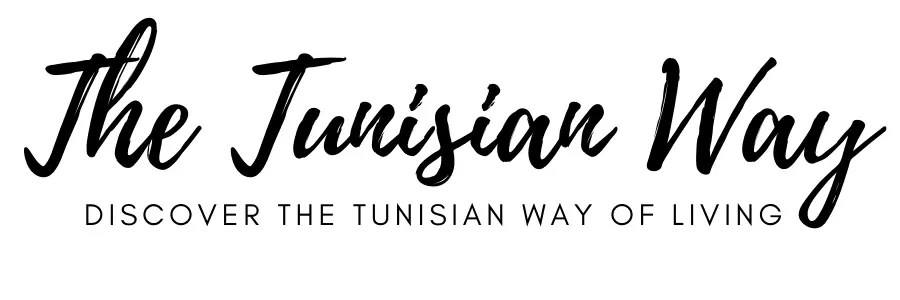Looking for a simple travel guide? This guide includes 19 things to know before traveling to Tunisia. However, for now, I am sticking to the basics. Knowing these things will ensure that your trip is full of good surprises and that you will enjoy every minute of your visit. Let’s start! The 19 things to know before you go to Tunisia are…
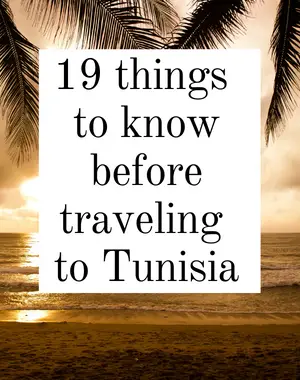
What is Tunisia famous for?
Why should you go to Tunisia? Tunisia is famous for its versatile nature, delicious cuisine, 1100km long coastline with hundreds of beaches, beautiful architecture, and fascinating history. The country has the charm to attract thousands of tourists from all across the globe every year. So, definitely add it to your list of must-travel destinations.
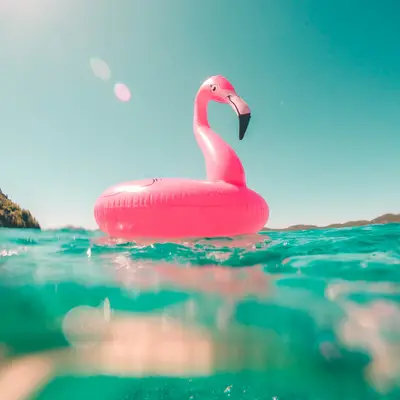
Best time to visit - when to visit Tunisia?
The best time to visit Tunisia depends totally on your preferences. What kind of weather do you like? What are you planning to do during your stay? Summer months, such as June, July, and August, are considered the best time to visit Tunisia. These months are also the most popular among tourists. It’s a great time to visit due to its beautiful weather and the country full of life.
September, October, and November are ideal for discovering the Sahara, as the weather isn’t too hot anymore. The best time for sightseeing and traveling around the country is February-April and September-October when the weather is mild and not too rainy. The best time to visit the country for the elderly is the spring months March-May, and the autumn months, October and November. These months offer plenty of sunlight without excessive heat.
Here you find how the Tunisian weather looks on a month-to-month which might help you to make better travel plans.
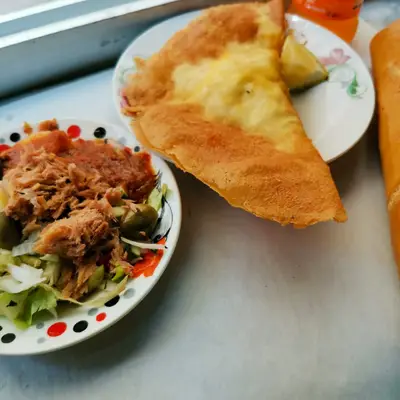
What type of food is eaten in Tunisia?
The typical Tunisian food is hot and spicy. Commonly traditional Tunisian dishes contain couscous, pasta, lamb, beef, chicken, chickpeas, green peppers, parsley, and harissa. Instead of eating with a fork and knife, Tunisians usually eat with bread. On your trip, try traditional Tunisian dishes like couscous, Slata Mechouia, Chorba, Brik, Mlawi, and Tajine.
Interested in trying some Tunisian drinks? You must drink at least Tunisian mint tea, fresh lemonade, a soft drink Boga Cidre, and Rouzata. Sounds interesting, right? Click here to find out more about Tunisian drinks. Now, you have an idea of what to eat and drink in Tunisia. But of course, we can’t forget all the traditional Tunisian sweets, pastries, and cookies. To get some inspiration, check the list of ten popular Tunisian sweets you need to try.
What's the currency in Tunisia?
The currency in Tunisia is called the dinar, with the Latin symbol DT and the currency code TND. One dinar equals 1000 millimes. The most used notes are 5, 10, 20, and 50 dinars. The coins are ½, 1, 2, 5 dinars, and 50, 100, and 200 millimes. The Tunisian dinar is a closed currency, which means it is only available in Tunisia. You won’t be able to purchase dinars in advance from your home country and bring those for your trip. Actually, it is illegal to import and export Tunisian dinars.
What is the main religion in Tunisia?
Islam is the largest religion in Tunisia. Approximately 99% of the inhabitants are Sunni Muslims, and the rest belongs to Christians and Jewish. The country hasn’t been using Sharia law since 1956, and Tunisia was the first Arab country to ban polygamy.
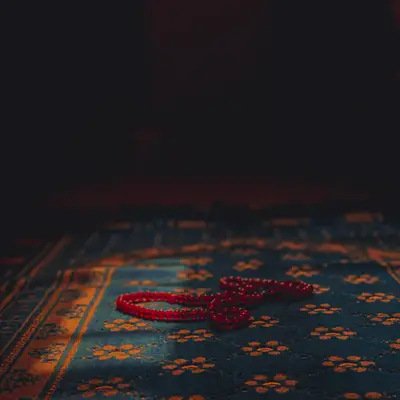
Where is Tunisia? - things to know before traveling to Tunisia
Tunisia is a relatively small country located in Northwest Africa. Algeria borders the country to the west, and Libya lies to the southeast. To the east is the 1100km long coastline of the Mediterranean Sea. Also, the northernmost point of the African continent Ras Ben Sakka is in Tunisia.
Should I visit Tunisia during Ramadan?
What is Ramadan?
Ramadan is a holy month for Muslims, the followers of Islam. It is celebrated as the month when Muhammad received the book Quran. Ramadan is the ninth month of the lunar-based Islamic calendar, and the exact beginning will be confirmed upon the sighting of the new moon. During this month, Muslims fast from sunrise to sunset. In this case, fasting means abstinence from eating, drinking, smoking, and sexual relations.
Ramadan in Tunisia - things to know before traveling to Tunisia
Visiting Tunisia during Ramadan will be a memorable experience. Tunisians say that during this month, the country has a unique taste, and it’s a fantastic opportunity to discover Tunisian culture.
If you are heading to Tunisian during Ramadan, be aware of the rhythm of these things:
- During the day, most of the cafes and restaurants are closed ( In the tourist areas, you will find restaurants open where you can eat if you are not fasting)
- Shops will close a couple hours before breaking the fast.
- Cafes and restaurants will open after breaking the fast.
- The nights will be filled with people and celebration.
- During Ramadan, nightclubs and bars are closed.
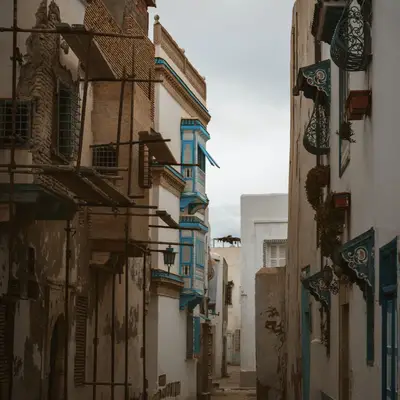
What language is spoken in Tunisia? - things to know before traveling to Tunisia
The official language of Tunisia is Arabic. Tunisian Arabic, also called Tunisian, Tounsi, and Derja, is spoken by over 11 million people. The Tunisian dialect is part of Maghrebi Arabic and resembles the dialects in Libya and Algeria. The Tounsi has some similarities with Maltese and also includes a lot of loanwords from languages such as French, Italian, Spanish, and Turkish. Other Maghrebi Arabic speakers understand the Tunisian dialect, but for other Arabic-speaking countries, it is hard to understand.
Do Tunisians speak French?
Besides Tunisian Arabic, Tunisians can also speak French. Some are fluent, others know the basics, and some cannot communicate with it. In school, French is taught to children from the age of seven. So, speaking french might be helpful, but it is better not to generalize that everybody speaks and understands it.
Do Tunisian speak English?
Most Tunisians don’t speak English. So, if you don’t speak French or Arabic, communicating might be a challenge. In the tourist areas and hotels, you will manage in English. Nowadays, teaching English starts earlier in schools, which could ease communicating in English in the future. But, I must say that even though there is no common language, you will find a way to be understood. So, absolutely don’t let this slow you done.
How to dress in Tunisia?
It’s your first trip, and you might be confused about what to wear in Tunisia. Tunisia is a conservative country, but they are very used to tourists. So, how tourist should be dressing? The short answer is that there is no dress code in Tunisia. You can wear whatever you want and dress as you like. The southern parts are more conservative than the northern parts. I advise you to dress more modestly and respect the local culture in the south and smaller cities and villages.
What to pack for Tunisia? - things to know before traveling to Tunisia
Read my post, the dressing guide for Tunisia if you are hesitating about what you should wear. There I answer the frequently asked question, such as what do women wear in Tunisia? What to wear at the beach, Sahara desert, or mosque? What not to wear in Tunisia? It’s helpful, so be sure to read it through.
And what to pack? Remember to check my ultimate packing list for Tunisia. It helps you pack the right clothes, essentials, electronics, and toiletries for your trip. In addition, I made clothing and toiletry lists for women and men, paying attention to the weather in different seasons. I also mention a couple of useful extras to bring with you.
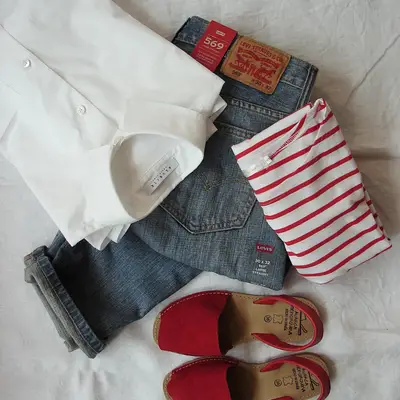
Leave the drone at home - things to know before traveling to Tunisia
Planning to make a fantastic video by flying a drone above Tunisian attractions? Not gonna happen! Filming with a drone requires permission from several Ministries, and the process is very time-consuming. If you travel with a drone and without a valid permit, usually, it will be confiscated. In conclusion, for this trip, better to leave the drone at home.
Can I drink tap water? - things to know before traveling to Tunisia
In Tunisia, it’s best to drink bottled water. Even though drinking tap water is apparently alright, but still the majority of Tunisians drink bottled water. In addition, it is cheap and tastes better than tap water.
Versatile nature of Tunisia - things to know before traveling to Tunisia
Tunisia has a beautiful and versatile nature. You will discover the Mediterranean sea, mountains, oases, the Sahara desert, islands, salt lakes, caves, and rivers. If nature is close to your heart, definitely consider traveling here.
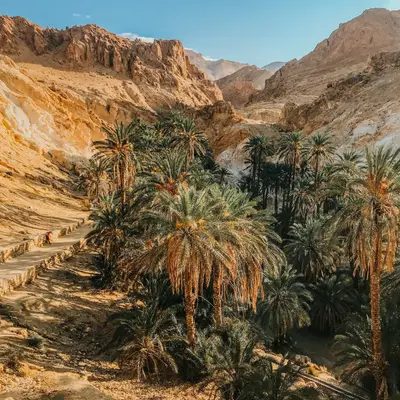
Traffic in Tunisia - things to know before traveling to Tunisia
Planning to have a road trip? Definitely, it’s one of the best ways to discover the country. But happens to be that traffic is the biggest security threat to travelers in Tunisia. The traffic can seem very chaotic to someone not used to it. The number of traffic accidents and casualties is unfortunately high. For a road trip, I recommend renting a car, but it is good to be aware of the nature of the traffic. For short distances and cities, I would use taxis and public transportation. This is the way to avoid stress caused by traffic jams, parking, and renting a car.
Historical landmarks - things to know before traveling to Tunisia
Tunisia is a dream destination for people passionate about historical landmarks and attractions. You can easily spend weeks filled with historical sightseeing. Here are a couple of examples to give you an idea of what is waiting for you.
- Discover Carthage, the old capital of ancient Carthaginian. It was an important trading spot in the Mediterranean sea. Carthage has a lot to offer if you are interested in historical sites, buildings, and landmarks: ruins of Carthage, Roman Amphitheater, Antonine baths, L’Acropolium, Byrsa Hill, and the National Museum.
- A famous Tunisian attraction, the El Jem amphitheater is something you do not want to miss. It is one of the world’s largest and most well-preserved Roman-style amphitheaters. Located in a small city El Jem (El Djem), about 200km from Tunis and only 60km from Monastir.
- Old Medina is one of my favorite places in Tunis. If you have only limited time, I advise you to visit Old Medina. Many tourists come from other cities to Tunis only to discover this. So you don’t want to miss this place. Old Medina is a maze of ancient streets and a home to hundreds of souks (=small boutiques). Fill your bags with the most beautiful souvenirs: carpets, shoes, sweets, jewelry, ceramics, and clothing.
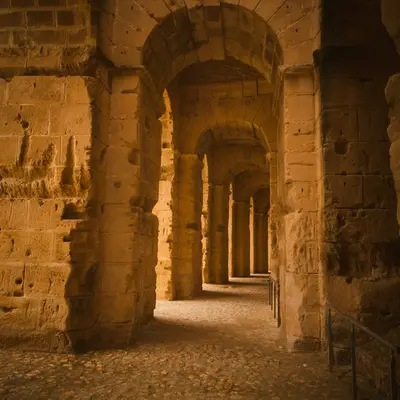
Is Tunisia cheap or expensive? - things to know before traveling to Tunisia
Are you wondering what sort of budget is needed for Tunisia? What kind of budget you need depends on what kind of traveler you are and what type of holiday you plan to have? Are you looking for a 5-star beach resort or backpacker hostel? Traveling alone or with family? If we compare the prices in Tunisia to other popular holiday destinations, we can conclude that Tunisia is cheap.
Having a holiday in Tunisia is relatively cheap. This is one of the factors why every year thousands of tourists come to spend a holiday. You need a relatively small budget for accommodation, transportation, restaurants, activities, and parties. To help you plan the holiday budget, read this article.
Is Tunisia safe? - things to know before traveling to Tunisia
Tunisia is a safe travel destination for tourists. In general, crimes against travelers and foreigners are low. The authorities have improved security in tourist resorts and major cities and their ability to respond to potential safety hazards. Also, crimes against tourists are punished harshly. Recently, many foreign governments have declared that Tunisia is safe for tourists.
To get to know more about safety in Tunisia, click here! I answer questions regarding the safety of female travelers, potential safety hazards, and areas to avoid, and share some safety tips.
Haggling is an art - souvenir shopping.
Haggling is an ordinary social activity in Tunisia. I understand that it might feel awkward if you are not used to it. But it is a big part of shopping, especially in souks in Medina, so get ready for it. Most of the time, there is room for a bargain, so here are a couple of tips to help you out.
- Haggling is supposed to be fun, so don’t take it too seriously. My friend, don’t forget to smile.
- Start bargain only if you are willing to buy the item.
- Don’t bargain in chains (Zara, H&M, LC Waikiki, Carrefour) and markets where they sell fruits, bakery products, fish, and meat.
- Tunisians are full of passion and emotions, which you will notice when bargaining with them. Big emotions are part of the process.
- You can always say thank you for your time and leave if you are not pleased with the deal.
- Continue to negotiate until you find a price that fits both.
Be careful when crossing the street - things to know before traveling to Tunisia
As I mentioned before, traffic is chaotic in Tunisia. Be careful when crossing the street because most cars will not stop. Also, you can’t stand there forever, hoping traffic to end or someone to stop for you. When you decide to cross, be prepared to stop between the lanes.
Can I drink alcohol? - things to know before traveling to Tunisia
Unlike some other Arabic countries, in Tunisia, alcohol is legal, and the legal drinking age is 18. So, you can buy and drink alcohol, but it should not be consumed in public, for example, on the streets.
Here you find the guidelines for drinking, smoking, and partying in Tunisia.
And voila, we are done! This was my list of the things to know before traveling to Tunisia. I hope you find it helpful! I will be happy to help, so please do not hesitate to leave a comment or question. See you again next week!
